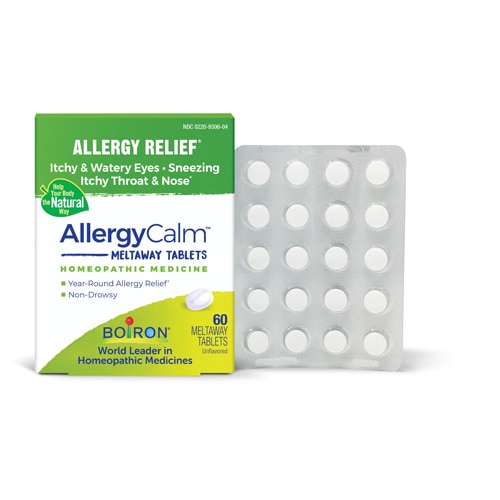[vc_row][vc_column][vc_column_text]You might suffer from springtime allergies triggered by tree pollen, grass pollen, mold spores or other sources. But allergies don’t take a vacation. Millions of Americans also experience allergy symptoms in the fall.
So, how can you recognize fall allergy symptoms? Why do allergies happen in the fall? And
how can fall allergies be treated? Read along to learn the answers to these questions.

How do you know you’re experiencing fall allergy symptoms?
You generally can tell you’ve got fall allergies if you’re experiencing these symptoms:
- Watery eyes
- Itchy eyes
- Scratchy throat
- Runny nose
- Stuffy head
- Facial pressure
The Allergy & Asthma Network points out that these
symptoms can mimic those of COVID-19. But there are differences:
- A common symptom of COVID is a fever of at least 100.4 degrees, but fever is not a fall allergy symptom.
- Sore throat is more common in COVID patients than it is in allergy sufferers.
- COVID can be accompanied by digestive issues like nausea, vomiting and diarrhea. But symptoms of fall allergies typically don’t include digestive problems.
You also can spot differences between fall allergy symptoms and cold and flu symptoms. For example, according to the National Institutes of Health:
- Allergies cause itchy, water eyes, while colds or the flu typically doesn’t involve these symptoms.
- Allergy symptoms can drag on as long as about six weeks. Symptoms of colds or the flu normally don’t last more two weeks.
What causes fall allergies?
Allergies happen in the fall because certain triggers hit a peak during
this season. A common trigger is ragweed.
In the U.S., ragweed season erupts in the late summer and early fall, typically reaching its height from mid-September through October. About 50 million Americans are allergic to ragweed,
according to the Asthma and Allergy Foundation of America.
The foundation lists a number of symptoms of ragweed allergies:
- Runny nose
- Stuffy nose
- Postnasal drip
- Sneezing
- Itchy nose, eyes, ears and mouth
- Red and watery eyes
- Swelling around the eyes
- Moodiness and irritability
- Tiredness and disturbed sleep
Other allergy causes that may pop up during the fall include mold spores, grass pollen, dust mites and pet dander.
“Knowing if you have fall allergies and what you are allergic to is a good first step to wellness,”
says the American Academy of Family Physicians.
What to do if you’re affected by fall allergies
Fall allergies commonly are treated with antihistamines, decongestants and nasal steroids, according to the National Institutes of Health. By contrast, colds and the flu normally are treated with rest, fluids and over-the-counter medication. Antiviral drugs might be prescribed for someone with the flu.
Another option is immunotherapy in the form of allergy shots.
The American Academy of Family Physicians explains that an allergy shot contains a tiny amount of the allergen that you’re sensitive to. Rather than being injected, an immunotherapy treatment might be administered under the tongue.
“The idea is to gradually desensitize your immune system to the things that causes your allergies. Over time, this approach can make you less sensitive to it. And that reduces your allergy symptoms when you are exposed to it,” the academy says.
The Southern Illinois University School of Medicine offers these additional
recommendations:
- Stay indoors and close windows when pollen counts are high.
- Reduce exposure to allergens by wearing a mask and light, long-sleeve clothing when you venture outside.
- Wash your hands and consider changing clothes after spending time outdoors.
- Take a shower before bedtime to get rid of pollen and other allergens on your body.
- See an allergist. A doctor specializing in allergy care can test for allergies and may be able to come up with treatments that are tailored to your needs.
Natural or alternative remedies also might help ease the discomforts associated with fall allergies. They include:
- Probiotics, which can support gut health and can fortify your immune system to better cope with allergies.
- Accupuncture, which might boost your immune system.
- Dietary supplements such as vitamins A, C and D, along with omega-3 fatty acids, sting nettle (considered a natural antihistamine) and quercetin(which has antioxidant and anti-inflammatory properties).
[/vc_column_text][/vc_column][/vc_row][vc_row][vc_column][vc_text_separator title="Featured Products" border_width="2"][vc_row_inner equal_height="yes" content_placement="middle" gap="35"][vc_column_inner width="1/3"][vc_single_image image="169197" img_size="full" alignment="center" onclick="custom_link" img_link_target="_blank" css=".vc_custom_1696539079337{padding-right: 7% !important;padding-left: 7% !important;}" link="https://www.vitacost.com/genexa-allergy-care-organic-allergy-decongestant-for-adults"][/vc_column_inner][vc_column_inner width="1/3"][vc_single_image image="169196" img_size="full" alignment="center" onclick="custom_link" img_link_target="_blank" css=".vc_custom_1696539096830{padding-right: 7% !important;padding-left: 7% !important;}" link="https://www.vitacost.com/dr-kings-natural-king-bio-allergies-and-hay-fever"][/vc_column_inner][vc_column_inner width="1/3"][vc_single_image image="169198" img_size="full" alignment="center" onclick="custom_link" img_link_target="_blank" css=".vc_custom_1696539114372{padding-right: 7% !important;padding-left: 7% !important;}" link="https://www.vitacost.com/boiron-histaminum-30c-allergy-relief-3-tubes-1"][/vc_column_inner][/vc_row_inner][/vc_column][/vc_row]




